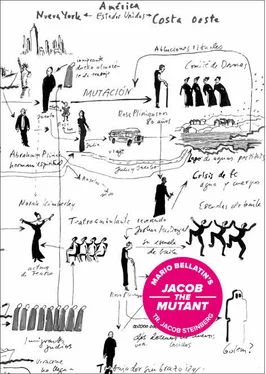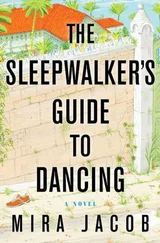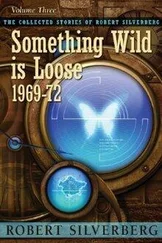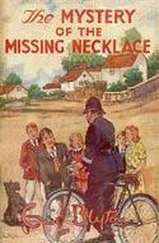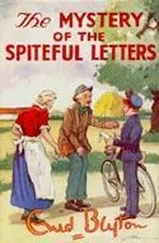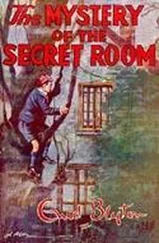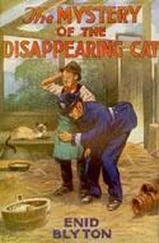Mario Bellatin - Jacob the Mutant
Здесь есть возможность читать онлайн «Mario Bellatin - Jacob the Mutant» весь текст электронной книги совершенно бесплатно (целиком полную версию без сокращений). В некоторых случаях можно слушать аудио, скачать через торрент в формате fb2 и присутствует краткое содержание. Год выпуска: 2015, Издательство: Phoneme Media, Жанр: Современная проза, на английском языке. Описание произведения, (предисловие) а так же отзывы посетителей доступны на портале библиотеки ЛибКат.
- Название:Jacob the Mutant
- Автор:
- Издательство:Phoneme Media
- Жанр:
- Год:2015
- ISBN:нет данных
- Рейтинг книги:3 / 5. Голосов: 1
-
Избранное:Добавить в избранное
- Отзывы:
-
Ваша оценка:
- 60
- 1
- 2
- 3
- 4
- 5
Jacob the Mutant: краткое содержание, описание и аннотация
Предлагаем к чтению аннотацию, описание, краткое содержание или предисловие (зависит от того, что написал сам автор книги «Jacob the Mutant»). Если вы не нашли необходимую информацию о книге — напишите в комментариях, мы постараемся отыскать её.
is a novella in a perpetual state of transformation — a story about a man named Jacob, an ersatz rabbi and owner of a roadside tavern. But when reality shifts, so does Jacob, mutating into another person entirely.
Jacob the Mutant — читать онлайн бесплатно полную книгу (весь текст) целиком
Ниже представлен текст книги, разбитый по страницам. Система сохранения места последней прочитанной страницы, позволяет с удобством читать онлайн бесплатно книгу «Jacob the Mutant», без необходимости каждый раз заново искать на чём Вы остановились. Поставьте закладку, и сможете в любой момент перейти на страницу, на которой закончили чтение.
Интервал:
Закладка:
Although after a few minutes he told me that he remembered during his childhood it was known that in a nearby village there was a saloon that had a zoo that only showed its animals at night.
Nonetheless, he indicated that the inhabitants of the village where he lived found this strange.
My grandfather never thought of going to visit the camels by night.
They were old animals.
Their fur was matted.
They barely even moved.
Their nights must have been even sadder.
A particular kind of sadness.
Perhaps similar to that which I thought I saw appear on my grandfather’s face when any allusion was made to his prohibited native tongue: Yiddish.
After having spent nearly thirty hours in my prayer cell at the advice of the sheikha of my Sufi order, I suddenly remembered that my grandfather told me how on a certain night that they spent awake past their normal bedtime, Macaque confessed to Master Porcupine that she had kept the proof necessary to show that Bruce Lee had not died a natural death.
That she was certain that her assassinated lover was Bruce Lee himself.
Nonetheless, for the American police, the case of the actor’s death was closed.
My grandfather told me that Macaque began to tell Master Porcupine the true story of Bruce Lee in Yiddish: the language of his ancestors.
When I tried to tell him that that was not possible I felt that suddenly my grandfather began to disappear.
I don’t know how to explain this process properly.
There, before the camels covered in dust, my grandfather, the one I’d always known, the one who took me on these walks, began to fade before my very eyes.
As though a higher force were erasing him from an imaginary piece of paper he had been drawn on.
Nevertheless, this type of disappearance of the image of my grandfather next to me does not mean that he ceased to be present.
No.
He was there without being there in reality, and without being an animal or plant or mineral substance either.
Maybe this is why the separation was not so traumatic for me.
My grandfather — in spite of the phenomenon that I began to perceive — was there, at my side, grasping my arm.
Many a person can ponder the relationship that might exist between this text I am now writing and the book Jacob the Mutant that precedes it.
The mystery could lie in the idea that stayed with me for many years, that my family thought that my grandfather could have transformed into some kind of animal, plant, or mineral.
But no, as I said, my grandfather seemed to find himself situated in a perpetual present, one in which a string of different languages — both living and dead — were able to converge on a single point: him.
And only in a present of this nature was the apparition of the Sacred Sephirot, as well as the idea that there is no God but God and nothing exists outside of Him.
Not even a seal fleeing toward the sea could provoke such an occurrence.
Some might even ask themselves how it was possible that Jacob wasn’t needed for labor the way that the other inhabitants of his town were.
He wasn’t called upon by the forces of the new order because he remained asleep for the duration of that season.
As though floating within the liquid that contains the columns that sustain the world.
In any case, questions about the perennial survival of Jacob will have to be asked of the English investigator who rescued the remains of the manuscripts from the German publishers.
I also don’t believe we will ever know Master Porcupine’s reasons for trying to develop his Mariotic Theory
Likewise, if the martial arts fighter was indeed Bruce Lee himself.
In the meantime, as these and other mysteries are slowly elucidated, the only thing left as something tangible is this book, Jacob the Mutant .
The aforementioned work and the group of camels that I used to visit with my grandfather before he disappeared from my life forever.
All the while I should not forget that, when I finish this state of prayer I find myself submersed in, the tasbih —that type of Muslim rosary — ought to be saved as if it were a relic.
Set next to a group of hardboiled eggs, like those prepared in the Catholic Church each afternoon.
A prayer rosary— tasbih —that, in some way, could bring the reader closer to the mystery that only the vision of a group of sheep grazing among rocks is capable of creating.
Let us have faith in it.
The Wait
The forms remain in suspense. The men’s skin perpetually wet. A golem. A dozen boiled eggs. The Stroemfeld publishing house’s employee, trying to blot out the traces of the text. No mutation is produced. All that appears is the image of some sheep grazing among rocks.
Explanatory Map, Number 2 by Zsu Szkurka


The Diary of Rose Eigen: A Translator’s Afterwordby Jacob Steinberg
Someone who maintains a routine life in his or her existence could perhaps have difficulties understanding some of the occurrences in the text Jacob the Mutant. Difficulties not only in understanding the characters, but also the fates, the physical or geographical spaces, and even the words that the reader must face. Each one of these elements, among other aspects, seems to avoid any aspect related to stability.
By writing these — now lost — texts whose rescued and compiled fragments that have been rescued and compiled make up a portion of the book we now call Jacob the Mutant , the writer Joseph Roth gives the impression of having created a world inhabited by characters without fixed identities, a universe that seeks to give way to new contexts, to realities that the reader unfamiliar with such forms — mentioned more than once in the book as aphoristic transformations — could deem absurd, or completely lacking sense.
But I know that there exist readers who understand — even some who have no alternative other than to understand — and know how such transformations work. They seem to understand them for the mere reason that they, themselves, have experienced similar mutations in the occurrences of their own lives.
Until recently I — now the book’s translator into English — didn’t have a precise idea of what it was that attracted me to such a text. I recall being overly intrigued by the somewhat strange occurrences that allegedly occurred in that border zone of the Austro-Hungarian Empire, events that gave way to the migration of a good number of Jewish immigrants to New York City, the place where I currently find myself writing this text.
In 1907, in New York City, a woman was born by the name of Rose Eigenmacht. Rose was the daughter of Charles and Yetta, immigrants from Eastern Europe (as were the greater part of the Jews who had settled in New York in that period). According to the gravesite of her parents — still today a tombstone bearing their names, both in English and Hebrew, and their dates of birth and death continues to watch over the plot they share in a cemetery in the Borough of Queens — they were members of the Independent Skoller Lodge #220, a Jewish fraternal society for travelers who had come from the Galician city of Skole, territory of the Austro-Hungarian Empire.
I don’t remember many other details I may have acquired regarding Rose’s childhood. In fact, until just about seven or eight years ago, I didn’t even know her name.
Читать дальшеИнтервал:
Закладка:
Похожие книги на «Jacob the Mutant»
Представляем Вашему вниманию похожие книги на «Jacob the Mutant» списком для выбора. Мы отобрали схожую по названию и смыслу литературу в надежде предоставить читателям больше вариантов отыскать новые, интересные, ещё непрочитанные произведения.
Обсуждение, отзывы о книге «Jacob the Mutant» и просто собственные мнения читателей. Оставьте ваши комментарии, напишите, что Вы думаете о произведении, его смысле или главных героях. Укажите что конкретно понравилось, а что нет, и почему Вы так считаете.
